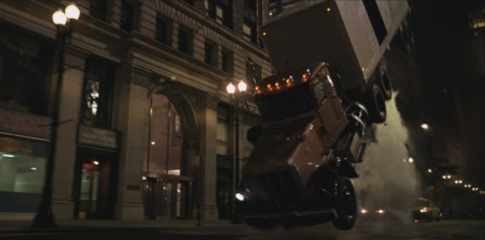How James Cameron's New Idea Could Save Movies - Or Ruin Them
Love him or hate him, James Cameron has a way of making it into the headlines, even if he isn’t making super-successful movies. Back in March, Twitter went nuts when Cameron became the first person to do a solo dive to the deepest point in the ocean. So I’m not surprised that Cameron and his business partners are aiming to wow us again with a new filmmaking technology, that could (yet again) change the way movies are made.
It has to do with the kind of digital worlds Cameron likes to feature in his Avatar movies. Along with fellow director Peter Jackson and the visual effects company Autodesk, Cameron is building a system that will allow directors to see how their actors will look in a CG landscape - as they shoot. The technique would improve actors’ performances and let directors adapt the digital set to suit a scene, rather than the other way around. But as with any tech development in film, there’s a potential downside: that we’ll see fewer films shooting on location, and less real content on screens.
By now, you can probably picture the visuals this technology would be used to create. The planet Pandora in Avatar is covered with sights that would be impossible without CG: floating mountains, alien creatures and futuristic space colonies. Until now, however, material like that has all been added to a film after the actors wrap on set.
While they shoot, actors have to imagine their whole environment, and that often reflects on their performance. Audiences can tell that the actors not really seeing any of the fantastic things whizzing around them. As for the directors, they have to hope that they can design the CG to fit around the performances and camera movements they captured on camera.
So like any new filmmaking technology, the system Cameron is designing will give directors more freedom to experiment. Actors will be able to see the CG set on a monitor, and incorporate that into their performance. As a result, it’ll be harder to pinpoint scenes that were obviously shot in front of a green-screen. In theory, we’ll finally feel immersed in the fantastical worlds featured in big-budget sci-fi and fantasy movies.
But I’ve been tracking the film industry for too long to be completely convinced. Cameron’s system certainly sounds promising, and I have no doubt it will help filmmakers realize their vision. In fact, that’s what I’m worried about. If the use of CGI becomes effortless, we’ll see fewer directors shooting on location, and more movies created almost entirely on computers.
Let’s face it: CGI gets better by the day. Between improvements in quality and innovations like Cameron’s new filming technique, there’s little incentive for a production to invest the time and money in capturing real visuals for their film. If you can just create the set in a computer program ahead of time and simply insert the performances of the cast, filmmaking loses a bit more of its humanity and artistry.
For a counter-example, consider Christopher Nolan’s movies. The director always tries to use practical, real-world effects before he resorts to CGI - like the rotating hotel in Inception, or the 18-wheeler flip in The Dark Knight. Every time we see a scene like that, we wonder, “How did they do that?”. But in a movie like Avatar, we know most what we’re seeing was made in a computer. No matter what you do to integrate CGI into a scene (even using Cameron’s new system), audiences will never be totally fooled.
The question becomes, where does it all end? Do we start casting robots in movies instead of human actors? If it’s easier to manipulate a computer than record a moving performance, do movies become glorified video games? Maybe I’m just being alarmist. But it’s worth weighing what technological advances will do to moviemaking. After all, movies are part of an indispensable social record. How can filmmakers make movies about people if all they’re worrying about are the pixels?
-
What do you think about the new technology that James Cameron is developing? Will it make movies better? Or will it only encourage more VFX-driven blockbusters? Join the discussion in the comments section, and if you liked this post, share it with your friends and followers! For more of my commentary on the film industry, check out these related posts:
-
Why Hollywood Needs a Spending Cap For Movie Budgets
4D Movies: The Latest, Greatest Gimmick Comes to North America
Vertigo and the Search for the Greatest Film of All Time
-
